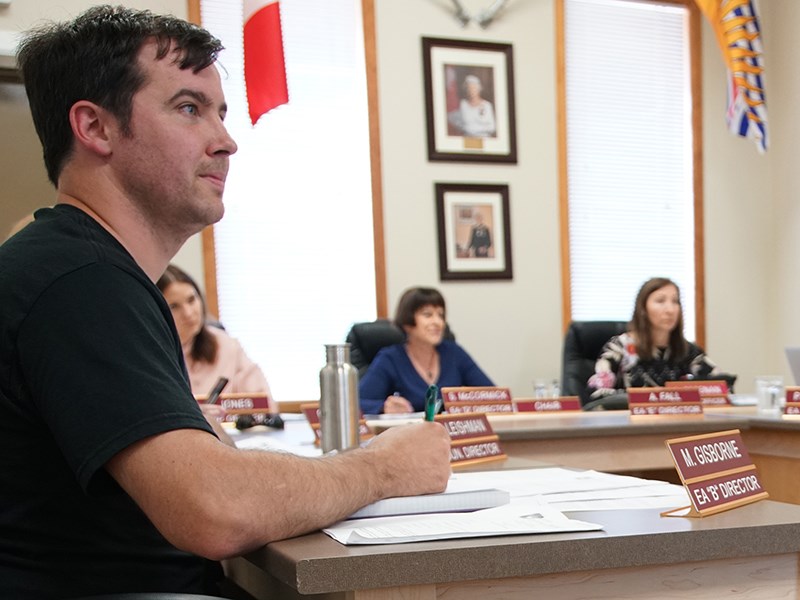Consideration will be given by the qathet Regional District board to adopt a policy for cannabis-related businesses.
At the Tuesday, June 11, regional district planning committee meeting, regional directors considered a recommendation on Cannabis-Related Business Policy 5.2.7, to guide decision-making on cannabis-related business applications within qathet Regional District. This followed a regional board recommendation from April that directed staff to prepare a cannabis-related business policy to guide decision-making on cannabis applications.
The board also directed staff to prepare an amending bylaw for Development Services Procedures Bylaw 477 to include a fee for processing cannabis applications. Staff members were further directed to prepare amending bylaws for each of the regional district zoning bylaws in Electoral areas A and B to include cannabis-specific regulations.
According to a written report from regional district manager of planning services Laura Roddan, the purpose of the policy is to ensure cannabis-related businesses are located in such a manner that they are sensitive to potential impacts on the surrounding community and are located in appropriate locations. The purpose is to also provide sufficient information in cannabis-related business licence application referral packages. The third component is that the regional district takes views of the public into account when making recommendations to the province on cannabis retail sales applications.
During discussion on the recommendation, committee chair and Electoral Area C director Clay Brander asked if there was any provision or procedures to deal with odours related to the production of cannabis.
Roddan said that issue is not addressed in the qathet Regional District policy. She added that City of Vancouver has adopted regulations to deal with emissions and regulating them, but in rural jurisdictions, there are very few examples of that.
“However, by discouraging production facilities locating in smaller lot residential neighbourhoods, that is a way for directing those facilities away from areas where the smell would be more of a nuisance,” said Roddan. “The next step coming out of the board’s directive from April was to look at amending the zoning bylaws, so with the neighbourhood zoning bylaws it would be possible to prohibit cannabis production facilities from operating on residential properties within those zoning boundaries.”
Electoral Area B director Mark Gisborne asked if it was known how many cannabis production facilities there are in the regional district.
Roddan said she did not have that information.
Gisborne said his concern is that he had talked to several cannabis producers and an estimate from those conversations indicated there are more than 1,500 different cannabis production facilities throughout the region.
“Cannabis production facilities, and trying to bring this into this policy, might be adding a lot of extra work to staff to try to process these,” said Gisborne.
He said it is a good policy and addresses the cannabis retail store issue the regional district is legislated to process. He said the proposed cannabis business policy also takes into consideration cannabis production facilities in the same policy.
“For a member of the public to come in and start a cannabis retail business, they can’t have a cannabis production facility on the same property as the cannabis retail store; they are only going to be coming in to do one or the other,” said Gisborne. “The production facility and the retail stores are under two different acts, one is federal and one is provincial. I’m concerned that in the future, the feds and the province could change their legislation and become once again incompatible with each other. How would that affect our policy?”
Gisborne said he was wondering if the regional district should have one policy for retail stores and a second policy for cannabis production facilities, which would also detail with the odours and other things that are a detriment to the community.
“Cannabis production is a much bigger beast than the retail stores because we don’t have any retail stores in the rural area, but we have lots of cannabis production facilities in the rural areas,” said Gisborne.
He proposed an amendment to the recommendation that all language relating to cannabis production facilities be removed from the policy, and that staff be directed to come back with a separate policy pertaining to cannabis production facilities.
There was no seconder for the amendment.
The recommendation passed with Gisborne opposed and will go to the regional board later this month.



